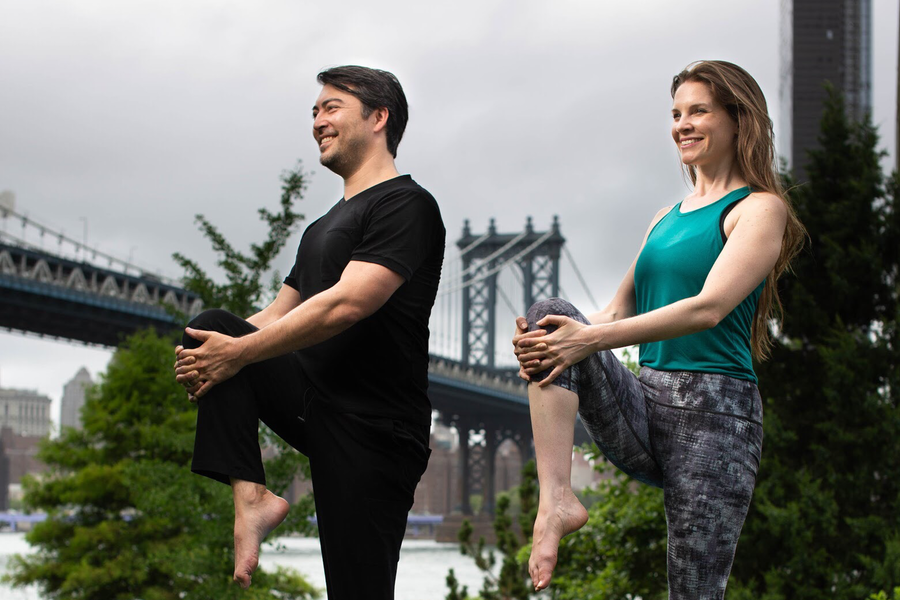
In the quest to find the most effective balance between modern medicine and personal self-care practices, Dr. Erich Anderer has some very, well, balanced ideas.
As chief of neurosurgery at an academic center in New York City, Anderer’s job is to perform surgery on a variety of spinal conditions. However, he estimates that nine out of ten of the patients that come in with back pain for consultations do not actually need surgery.
Self-Care or Surgery? Understanding Spine Health
According to Anderer, before pursuing surgery, many of his patients ought to try simple alternatives to regain mobility and strength in the tissues that move, support and stabilize the spine. So with patients, and through his quarterly back pain show on Doctor Radio on Sirius XM, he regularly recommends yoga, pilates and other conscious fitness and regeneration practices to fend off the need for surgery and enhance spinal health.
Over here at Tune Up Fitness® we are quite optimistic about the future of healthcare with people like Dr. Erich Anderer at the helm. So we are delighted he agreed to share his perspective on a few key themes that impact all of us who wish to live pain-free, active lives.
First we asked what inspires Dr. Anderer about his work as chief of neurosurgery and assistant professor of neurosurgery in prominent school of medicine (he also serves on the boards of the NY State Neurosurgical Society, the Japanese Medical Society of America)…
What inspires a neurosurgeon about his work

I love the fact that there is so much yet to be discovered about the way the brain and spine work. There is a huge push to utilize slick technology and bring exciting bench research into the operating room.
That being said, I am hoping there are major paradigm shifts in how we treat patients with neurological disease, because there is so much we still don’t know. Also, there is great potential as a neurosurgeon to completely alter the course of someone’s life based on a procedure you do. That’s the best part of my job.
Why Would a Spine Surgeon Be Interested in “Self-Care Healthcare”?
Even though I’m a surgeon, I don’t advocate surgery for most spinal conditions. It used to be that if you had acute back pain, you would wear a brace or be on bedrest for a week.
Now, we generally advocate a return to normal activities as soon as possible. There’s statistical evidence showing better outcomes if you do that.
Keeping active and fit tends to prevent a lot of back pain, since most of the time this has more to do with muscle spasm or some deficit in core strength, rather than a structural issue requiring invasive types of treatment.
Are more western doctors opening up to self-care strategies?
I think many more physicians are starting to embrace non-invasive treatment modalities such as yoga, pilates, meditation, and acupuncture to treat a lot of conditions, not just spine pain.
It’s hard to ignore the fact that there is now scientific evidence showing some of these modalities to be at least equivalent, if not better than, the more traditional modalities.
I think there are a lot of practitioners out there who believe in these techniques, but there needs to be more research done so that insurance companies will eventually have to cover them.
Right now, I can prescribe a week of an opiate medication for someone and have it covered by insurance, but if I suggest they do a week of yoga, they’ll need to pay out of pocket. I believe this will change in the future.
The way our healthcare system works, practitioners and hospitals used to be incentivized to perform billable procedures. There is a current push by the healthcare industry to reduce the need for inpatient care.
This is fueled by a focus on so-called social determinants of health (home situation, nutrition, access to resources, etc)–and I believe increased awareness and implementation of self-care techniques goes hand in hand with these.
Should other medical professionals check out nonsurgical self-care practices?
I think all of us can benefit from thinking outside the box. We’ve gotten to the point that most physicians will admit opiates are not a good treatment for chronic pain. Many surgical procedures, such as spinal fusions, continue to be studied to determine who are the patients that most benefit from them.
So, why not consider techniques that are inexpensive, don’t require a visit to a specialist, and have a low risk profile?
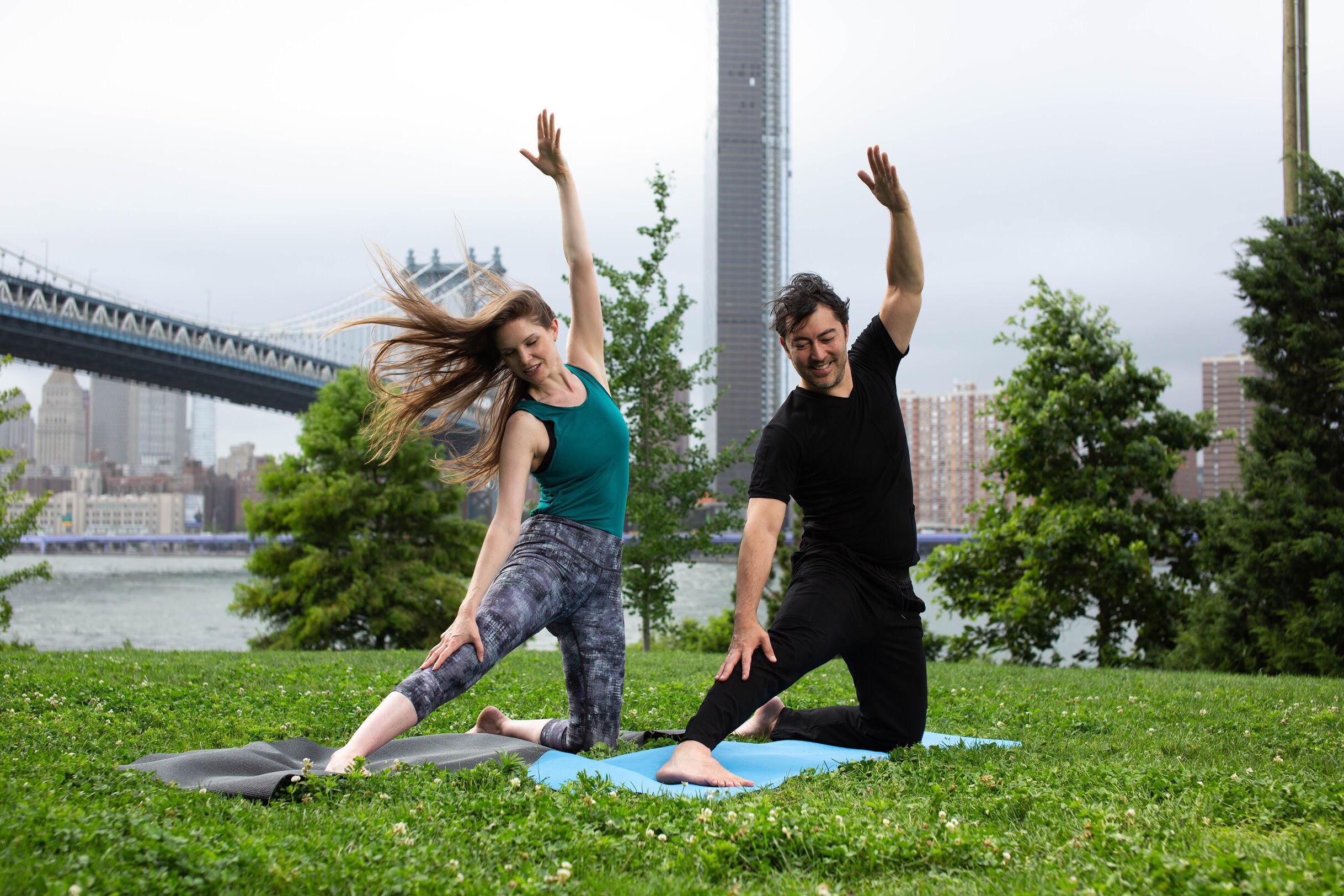
How do you hope to shape the future of healthcare?
There are certain medical conditions that need to be evaluated by a physician, no doubt. But there are many conditions, garden variety neck and back pain among them, that can be well managed at home. This could potentially avoid unnecessary office visits, health care expenditures, and lost work days.
I believe the general push toward treating all but the most serious conditions on an outpatient basis is a good one. We’ll better be able to achieve this goal if people are fully invested in their own treatment and recovery, which the self-care movement helps facilitate.
Amazing! We couldn’t agree more. Thank you so much Dr. Anderer for your time and insights on spine health!
When Dr. A isn’t suited up in scrubs you can find him serving on the board of the Open Space Alliance, which is a parks conservancy in North Brooklyn. Or back in the day you might’ve even seen him onstage playing in a popular band here in NYC… but now he mostly just plays guitar at home with his kids.


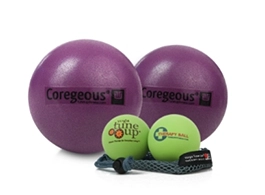
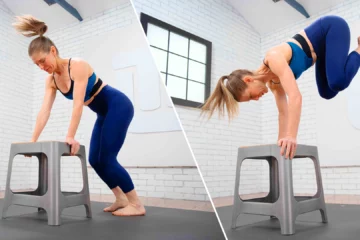
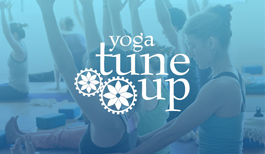



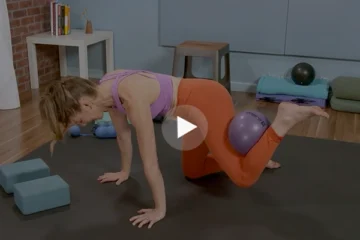
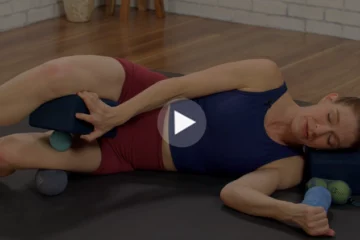
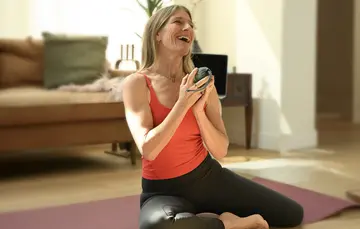

It’s nice to read that there are even surgeons for whom surgery is the last resort. In Western medicine you usually get the impression that the scalpel is drawn out quickly too often. After these procedures, many patients often have significantly more physical problems than before. This report confirms that on me.
What a refreshing perspective! It has given me great confidence in the modalities I practice and lead. It was very affirming that he advocates returning to normal activities as soon as possible. I have found this to be true with my own body. It is also a bit disheartening to realize that cost is prohibitive in having people partake in practices that could support them better than an opiate prescription or the like.
So refreshing to hear this directly from a neurosurgeon because although alternative therapies are gaining more recognition – opioids and surgery do end being common tools to deal with pain. I have worked with many clients who had surgeries done to relieve nerve pain and for many, it did not ease any pain and in some, it even led to neurologial symptoms on the other side! I agree with Dr. A’s statement about how much is still not understood, as advanced as technology for medical procedures become, it is separate from understanding pain. Pain is so complex! Bodies are complex! It is important for people with chronic pain to look at different methods of healing rather than jumping straight to pharmaceuticals and surgery. The root of pain is usually multifactorial therefore easing pain is also multifactorial.
As someone whose life was completely altered in negative ways becuase of spinal surgeries, I believe this understanding is long overdue. The day yoga is covered by insurance companies will be a big win for all. Yoga and Tune Up style work helped keep me alive and feeling like I had some control over my pain going into and coming out of my spinal surgeries. I do believe I had no choice but to have those surgeries, but I don’t ever want to do that awful experience again and am hoping to find the optimal medley of modalities and healers to help me continue along my journey.
It is so nice to see that some of the top surgeons going against surgery for most spinal conditions and recommending simple alternatives to regain mobility and strength in the tissues to relieve their pain. The future of healthcare looks more promising!
As much responsibility as the medical community has in shifting away from pharmaceuticals and invasive surgery I think there is also a responsibility of society to change the stigma attached to yogis/ yoga in particular. Often times people have an aversion to yoga because they themselves are not flexible or they don’t take yogis seriously because they are too spiritual. That is why I appreciate Yoga Tune Up ® because the instructors consider all types of movement practices and have a good understanding of anatomy.
This is amazing to hear that surgeons are turning towards self-care practices to help with musculoskeletal pain and distress. As someone who began my yoga journey because of back pain, I was able to find an ortho doc similar to Dr. A who helped me understand that I needed to be a part of my own recovery from my injury – my own will to continually do strengthening and mobilizing exercises dug me out of my injury and pain but it took work! I think inspiring others to learn about their own bodies – especially as it relates to their pain or immobility – is such a s gift of Yoga Tune Up. Thank you for interviewing someone in the medical community who is aligned with that mission!
I am very happy to see that more and more doctors are suggesting yoga exercises instead of drugs. We are going in the right way. Now, it is important to education more an more the population and explain all the benefits of the self-care practices.
A testimonial to a future trend that is on its way in the medical community. The growing number of personal testimonials will hopefully support future research.
Wow, nine out of ten patients? This is a refreshing interview. Although the back doctors I know usually advocate everything else before surgery, I wish more doctors would practice self-care techniques instead of outsourcing the treatment to other professionals. I’ve often been shocked when a doctor has said to me, I’ve never tried it before, but I heard _________has been helpful to most patients. Thank you for your honesty Dr. Anderer.
Thank God our doctors are starting to get on board with this needed change in healthcare perspective.
Sería increíble que los seguros médicos cubrieran algunas de estas técnicas de movimiento corporal antes de indicar una cirugía, se ahorrarían mucho dinero y los pacientes no tendrían que pasar por el quirófano. Yo he sido testigo de que con el simple hecho de aprender a mantener la columna neutral, se quitan muchos de los dolores de espalda y hasta de rodillas. Hay que promover más la prevención a través de prácticas efectivas y eficientes para mantener la salud de nuestro cuerpo.
Qué auspicioso que la medicina moderna de occidente comience a priorizar la prevención, el autocuidado , en definitiva que los seres humanos tomemos las riendas de nuestra vida. Maravilloso escuchar a un cirujano decir que la mayoría de los síntomas no requieren de una cirugía.
Gracias por este asrtículo tan esperanzador.
It it very encouraging that a spine surgeon embraces the self-care and self-treatment!
Amazing article!
Very happy to hear that you see the shift towards people investing in there own well being
OMG! Wouldn’t it be amazing if Doctors could prescribe yoga! I have worked with many people who are frustrated with the current mode of treatment authorized by medical insurance . I hope to see the day when some changes are made and I happy to see that there are neurosurgeons in support of some healthy alternatives to more invasive procedures!! Thanks for sharing….
Amazing interview! Having a neurosurgeon like Dr. Anderer on board with self-care and self-treatment is exactly what people need to hear. As he said “increased awareness and implementation of self-care techniques” would be life-changing for so many, and bring about positive change in so many different areas of life, not just physical pain.
It’s so encouraging to hear a neurosurgeon say that he feels that many of the patients who come to him for consultations should not do surgery. Yoga Tune Up gives us so many tools to help people like this build the core strength and the muscular flexibility to heal in other, less invasive ways. Thank you for the inspiration, Dr. Anderer!
Dr. Anderer has the attitude of humility I appreciate in a health care professional, in that he expresses the humility to suggest he may not have all the answers. This element of curiosity, in that ‘we don’t know what we don’t know’, leaves the door open for exploring new avenues for self-care.
We need lots and lots of more doctors to think this way. Unfortunately our medical system relies on prescribing drugs to treat patients, and also that a great number of patients don’t want to do the work to get well, they want a quick fix medication answer to their pain or issue. People need to be educated on how to take care of themselves and put in the effort and work to be well and stay well! Yoga, exercise, meditation and relaxation should be the prescription!
It’s great see this shift towards a more holistic approach to pain management and health overall, especially hearing from a surgeon that surgery is a last resort. As a yoga teacher, and soon to be YTU instructor, I love hearing from students how yoga has helped them with pain, an injury and what not. One of the best things about teaching and sharing these practices is empowering people to take charge of, and care of their own body and health. Onward!
I really like this article super interesting
I don’t know if we’ll see insurance companies follow the wave eventually, but it surely is a great breakthrough to see doctors think outside the box and push their patient becoming active player in their health.
I hope that movement will become well-recognized as necessary to human health. This article shows the biases of a sedentary culture that think movement is medicine or surgery is the solution to pain. Not moving is the issue. Although, since this is a hyper-capitalist sedentary culture prescribing yoga or tai chi as ameliorative would be positive progressive step forward.
I am grateful to see this article. I believe that if more doctors would share their opinions about self care that perhaps it could have a much bigger role in our current healthcare system. As a Health Coach, I understand that the body does have the ability to heal and that practicing self care can also prevent many diseases and injuries. I would love to see a collaboration between doctors and Health Coaches.
Finally , a doctor who is speaking a different language. I am hoping that people will start to think about self care more than running to doctors for drugs to ease their pain. We all need to love our body pains in a more positive thinking and get to try and find out how to heal with self care. Our bodies are beautiful and they do give us so much but then we end up not giving back. Some TLC is needed at all times.
This article post was really interesting to me and had me think about the current health care system and how there are clear areas for improvement. I feel fortunate to live in a city like New York where there seem to be many options and people like Dr. Erich Anderer that think outside of the box. It also encourages me to look into my own insurance policy and figure out what alternatives I have as well when I experience pain whether mentally or physically.
When I was 38 (17 years ago) I herniated L5-S1. Due to my years of lifting people with spinal cord Injuries, birthing 3 kids in 5 years and not giving myself the proper self care my disc could not support me anymore. The pain was disabling, I was overwhelmed and inpatient, so I went under the knife. I look back now, and recognize my knowledge base and experience ( as well as my physicians) did not understand the benefits of fascia, stabilization/propriception/and flexibility to recover from such an injury. Today is a different story where self care is a daily ritual to protect and maintain my health through out my life.
Dr. Joe Dispenza, one of my favorite authors, teaches about neuroscience, epigenetics and quantum physics. Self-care and self-awareness is of paramount importance. Im working on it every day and little by little it gets better and better. I wish more and more people start exploring it!
Great to hear a surgeon looking outside the box to find alternatives to surgery. Going forward I hope the health care system will see the benefits of alternative care.
Thank you for your article.
My aunt suffers from back pain and the neurosurgeon she went to also suggested surgery. However, she decided to take matters into her own hands and started seeing a physical therapist that showed her self care exercises and had acupuncture done. She feels better as time goes by. I wish many more surgeons would access this article and gain insight on self care.
It’s such a relief to see that mainstream medicine is slowly starting to embrace more integrative mind-body therapies and techniques for addressing pain and injury. Hopefully, the insurance industry isn’t far behind.
It is so refreshing to read a surgeon prescribing less invasive treatments than surgery and pain killers for acute and chronic pain. I hope insurance companies will jump on that bandwagon some time soon so people can have access to more preventative and restorative health care without paying out of pocket for individualized mindful movement sessions.
Having taken physical therapy from someone and not had a “buy-in”, I never felt like it was effective and I quit. Years later I found someone who took the time to explain what was happening and what we were trying to accomplish. Immediately I felt buy-in and my attitude shift resulted in a more dynamic and successful progression of healing.
I love that physicians like Dr. Anderer can advocate for non-invasive therapeutic treatments like yoga and pilates! I also recognize that not all yoga and pilates and fitness professionals are created equal, and highly recommend those with injuries and requiring specialized care to find someone who is knowledgable and experienced in therapeutic backcare. Yoga and Pilates in and of itself does not have the power to heal an injured back. In fact, it can actually have the opposite effect if practiced improperly…That is why it’s so important for teachers to continue our studies, and for students to make sure their instructors are qualified for their needs.
wow, this is such a positive and encouraging article. i teach so many students with chronic lower back pain. i always had pain as well throughout my marathon and triathlon days. the pain was debilitating. understanding anatomy of my body, i understand how the tight psoas from running wraps around and attaches on the spine at my lower back! with the therapy balls, i can self heal. once people learn why they are having pain then when they see what habitual movements are causing the pain and we teach them how to self heal, i believe we will avoid so many injuries and surgeries. i hope more doctors and the insurance world can see the whole person and the whole picture!
I’m glad to see that the medical field is slowly realizing that surgery isn’t the only option. I recently found out that an associate of mine flew back home (overseas) to have a second back surgery overseas. I can’t help but wonder if it was absolutely necessary in the first place.
The good news is at least there slightly more awareness and new developments all the time. I’m looking forward to being able to offer my students help when they need it. I was/am one of those students.
What a wonderful idea if insurance would cover movement modalities as readily as they do pain meds. Here’s hoping there are more Doctors out there like Dr. Erich Anderer.
Interesting insight that 9/10 of people that came in didn’t need surgery. Makes me wonder about what those people were feeling both physically and emotionally about their that they thought surgery might be the solution. Also very glad he’s recommending other methods to address spinal and overall health. Hopefully the shift in healthcare gains more momentum!
I find it amazingly encouraging to believe that an increasing number of medical professionals will open up to alternatives to western approach, be it surgery or allopathic medicines. It is totally understandable that they need sorts of evidence, they are scientific-minded after all! I am personnaly very hopeful that Neurosciences will bring more and more “proofs”. All recent studies around meditation for instance are eloquent and very promising. Let”s hope we get a lot more knowledge soon and the next generations can benefit from less recommandations to go for surgery…
Just an anecdote I want to share, a couple years ago, I suddenly lost sensations in my right hand thumb and index, right after a yoga class. That same evening I attended a wedding and found myself sitting at a table with a neurologist. I know it wasn’t a kind thing to do as he was off-work but I couldn’t resist telling him about my experience and it took him just a few seconds to tell me in short “go for carpal tunnel surgery, it’s a very common operation and all will be solved”. As we were at that time living in Singapore, I asked him about alternative treatments like acupuncture which he brushed away immediately. Of course, I didn’t go for surgery, I did some research, went to see my TCM doctor, had some deep tissue massages, acupuncture, later did some rolling with YTU balls, thought about my practice that day and how I had probably created a nerve pinching so I could learn from this issue and do differently the following time. It took about 2 weeks to get sensations back, since then all good!
PS: I am aware I didn’t go for a real consultation and that doctor may have expressed a less radical advice had I been in his clinic
Let’s keep spreading the word about trying out self-care before resorting to surgery! I know someone who will practice some PT stretches (but not exercise) and hasn’t tried much more than that to alleviate painful symptoms from spinal stenosis. I think yoga and massage would help a lot more. . . at least give them a shot first before going under the knife.
I love the idea of patients seeking non-invasive treatments first. Dr. Anderer is very forward thinking!
Thank you for introducing me to Dr. A. I look forward to checking him out on Dr. Radio. I’ve experienced this trend myself and it is so very encouraging…empowering!!! The issues I’ve had for more than 25 years that were initially being treated with meds and injections (with the option of surgery) are now being treated by me 🙂 with the guidance and support of my team of forward thinking medical practitioners.
Totally impressed by an Instagram post by Dr. Anderer encouraging people do explore their interests, but to do so fully! As a self-care healthcare advocate it is reassuring to see a prominent voice in the healthcare community echo similar sentiments. His passion is apparent and I have no doubt with voices like his in the medical community self-care strategies will soon trend.
Thoroughly inspiring to hear someone of Cr. A’s stature not only embracing, but supporting non evasive modalities such as yoga and movement. It is empowering when someone can treat/care for themselves rather than being seen as a patient in need of care.
We are at a very exciting time where western medicine and yoga are coming together to help people bring awareness to their aching bodies. I am a believer in non-invasive treatment first and learning how your own body works and moves. Great to hear Dr Anderer ‘s view.
This has always been my way of treating my body issues. Discover your own body and find the solution. Finally, some persons in the medical community share information that this is a good choice for someone’s health. Changing thinking and opening doors to solutions in our society is crucial. Thanks for this post!
It’s really great to hear there is a medical professional community out there that believes self-care healthcare can and should be a first line of defense when issues arise!
Always good to hear from a conservative surgeon about encouraging their patient to be fully invested in their own treatment. The insurance companies would do well to listen about what treatments should be reimbursed as well. Makes sense !
I think the concept “Self care is health care.” is absolutely brilliant! Would love to see the pendulum swing in that direction!!